Brighton, UK NOV 2022
Quality Culture
a Foundation of Quality-by-Design




 Andrew Bentley Quality Assurance & Risk Specialist, MiNA Therapeutics
Andrew Bentley Quality Assurance & Risk Specialist, MiNA Therapeutics


QUALITY RE:UNITED
RQA
2
The opinions expressed in this presentation are the author’s and not necessarily those of MiNA Therapeutics or any of the parties referred to.




3 DISCLAIMER ICH E8(R1) –General Considerations for Clinical Studies 1998
ICH E6(R3) –Guideline for Good Clinical Practice 1997 → 2016 → Q4 2022(?) GCP RENOVATION 4
→ APR 2022
RENOVATION OF ICH E8
• PARTICIPANT PROTECTION & DATA QUALITY


Restatement of general principles & link to ICH E6 GCP
• QUALITY BY DESIGN
Identification of basic critical-to-quality factors supporting the principles
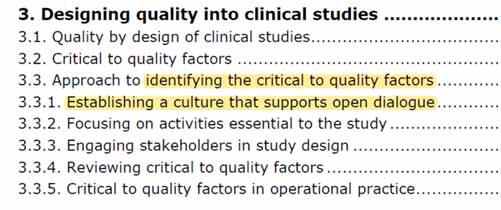
• DRUG DEVELOPMENT
Address a broader range of clinical study designs and data sources
• CROSS-REFERENCE


All current ICH guidelines relevant to planning of a clinical study
CRITICAL-TO-QUALITY FACTORS
5 6
QUESTIONS
• Will this be noticed?


• Will this be understood?
• Will this be effectively and beneficially deployed?

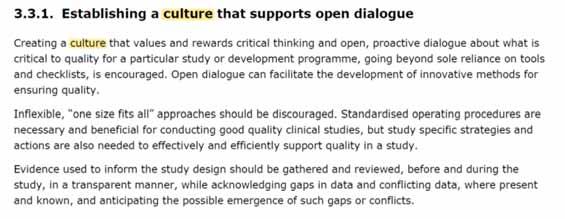

QUALITY CULTURE 7
8
WHAT IS QUALITY?
• EASILY DEFINED IN A GCP CONTEXT


• PROTECTION OF A PARTICIPANT‘S
Safety
Physical and mental wellbeing
Rights (e.g. data privacy)
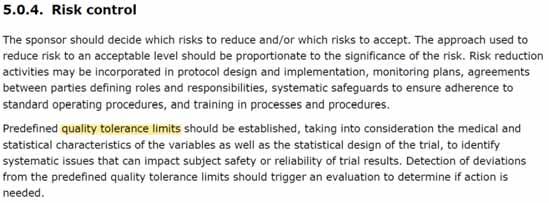
• GENERATION OF RELIABLE & ROBUST DATA
The absence of ‘errors that matter‘ to decision making


Safety of the IMP
Efficacy of the the IMP
HISTORICAL CONTEXT –E6(R2) 9
10
WHAT IS CULTURE?


• ‘When I hear anyone talk of culture, I reach for my revolver’ : Herman Goering

• The arts and other manifestations of human intellectual achievement regarded collectively e.g. arts, music, literature = luxury pastimes
• Culture is an umbrella term which encompasses the social behavior and norms found in human societies
• Acultural norm codifies acceptable conduct in society



• Business culture refers tothe set of behavioral and procedural norms that can be observed within a company—which includes its policies, procedures, ethics, values, employee behaviours and attitudes, goals and code of conduct
VALUING CRITICAL THINKING
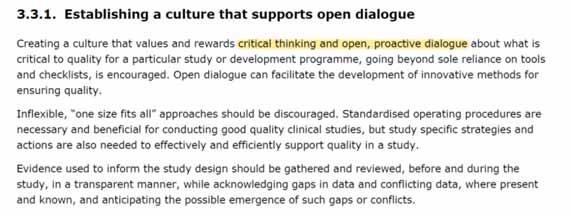

11 12
Many definitions, usually including:
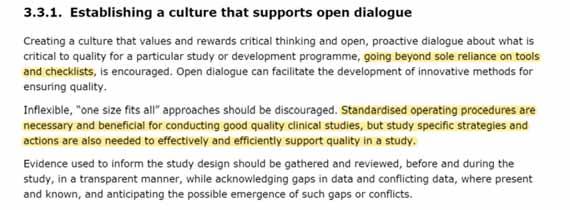



GOING BEYOND

Judgement
upon Analysis
Rational Sceptical Unbiased of Information comprising Facts Evidence Observations Involving: 13
THINKING & OPEN DIALOGUE FLEXIBILITY EXPLANATION LISTENING SHARING EVALUATION OBJECTIVITY FAIRNESS ANALYSIS
THINKING 14
based
that is
CRITICAL
CRITICAL
LIFE WITHOUT SOPs


What does life look like without SOPs and checklists?
AUFTRAGSTAKTIK
Defined as the actions a subordinate takes in the absence of orders that supports the senior commander’s intent.



PREREQUISITES
• KNOWLEDGE
What to do, how to do it, access to situational information
• TRUST
To act in alignment
• AUTHORITY
To act without permission
• BLAME-FREE
For failing while trying to do the right thing
• SHARING
All information on the table
15
16
We will do our bestest for all of eternity
SLOGAN ALERT !
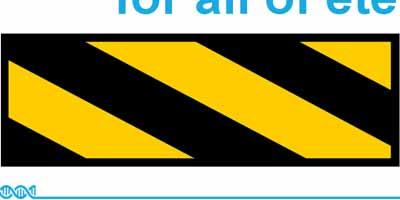
• Complex problem solving


• Critical thinking
• Creativity
• People management
• Coordinating with others
• Emotional intelligence



• Judgement and decision making
• Service orientation
• Negotiation
CORE VALUE 17
18
SKILLS for the 2020s
VALUES
• EASY TO REMEMBER
• RELEVANT & RELATABLE
• DOABLE
• EVALUABLE
• INTERRELATED –MUTUALLY SUPPPORTING


POTENTIAL TOP-LINE VALUES


• PATIENT FOCUS
• QUALITY FIRST
• PROCESS THINKING
• CONTINUAL IMPROVEMENT
• LEADERSHIP
• INDIVIDUAL RESPONSIBILITY
• ACCOUNTABILITY
• INTEGRITY
• EMPOWERMENT
• LEARNING & DEVELOPMENT
• TRANSPARENCY
• COLLABORATION & TEAMWORK
• RISK-BASE THINKING
• QUALITY-BY-DESIGN
• SCIENTIFIC METHOD
• FACT-BASED DECISION MAKING
• RECORDING INFORMATION
• PREVENTION
• EARLY DETECTION
19
20
MEANINGFUL AND ACTIONABLE VALUES




• Words and phrases → not enough
• Open to interpretation
ELABORATION #1
Leadership is the ability of an individual or a group of individuals to influence and guide followers.
NB not hierarchal.
LEADERSHIP
22
• Need definition & elaboration → common understanding 21
Through nurturing they create an environment in which all members of the organisation can become fully and personally empowered through understanding and being provided with the knowledge and resources to work towards achieve clear, consistent and compelling objectives.
ELABORATION #2
EMPOWERMENT
Every member of the organisation should be allowed a degree of responsibility and autonomy commensurate with their knowledge, ability and confidence.
NB not a free-for-all
Key to this are the authority and means to make decisions and ensure that those decisions are fact-based, consistent and defensible.
A fear of censure for failure should not inhibit the pursuit of a quality objective.
ELABORATION #4
INDIVIDUAL RESPONSIBILITY
Each individual is accountable for the quality of their work, and should be empowered to do it right the first time, while checking and correcting it if not.
NB self-correcting.


The quality function supports members of the organisation to ensure that their processes are well designed and fit for purpose, best practices and industry standards are shared, and correct and preventive actions are effective.

NB collaboration and teamwork.

23
24
Accountability should be an individual’s willingness to accept responsibility for their actions. It teaches us to own and value our work, and ultimately increase an individual skills and confidence. Negativity associated with failure and blame needs to be avoided.
NB lack of blame promotes transparency and early detection.




ACCOUNTABILITY
25 ELABORATION #3 INTERRELATION 26 CONTINUAL IMPROVEMENT PATIENT FOCUS QUALITY BY DESIGN PREVENTION design design design QUALITY FIRST FACT-BASED DECISION MAKING data data data TRANSPARENCY decision making INDIVIDUAL RESPONSIBILITY ACCOUNTABILITY responsibility blame free blame-free EARLY DETECTION risk COLLABORATION & TEAMWORK INTEGRITY openness openness openness PROCESS THINKING critical elements SCIENTIFIC METHOD objective analysis improvement LEARNING & DEVELOPMENT improvement EMPOWERMENT LEADERSHIP empowerment empowerment empowerment data risk blame free accountability RISK-BASED THINKING risk empowerment empowerment risk performance critical elements RECORDING INFORMATION & KNOWLEDGE record record
THEN WHAT?
• PAREIT DOWN –7 is a magic number


• SPREAD THE WORD –PROMULGATE


• APPLY IT
• EVALUATE DURING PERFORMANCE APPRAISALS
QUESTIONS?
27 28




 Andrew Bentley Quality Assurance & Risk Specialist, MiNA Therapeutics
Andrew Bentley Quality Assurance & Risk Specialist, MiNA Therapeutics































